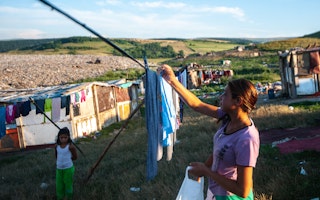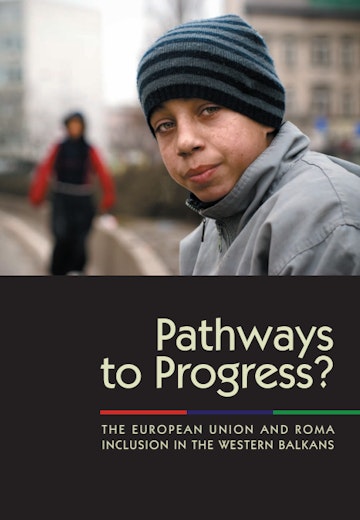The countries of the Western Balkans—Albania, Bosnia and Herzegovina, Croatia, Kosovo, Macedonia, Montenegro and Serbia—all aspire to membership in the European Union and have the status of "candidate country" or "potential candidate country" in the EU accession process. The process has opened opportunities for the EU and governments to address the situation of Roma, the region's most disadvantaged ethnic group.
The European Union should increase funding and monitor its impact on Roma inclusion, and increase opportunities for Roma to participate in the policy process. The EU also must hold prospective member states to account if they fail in their commitments and obligations to their most vulnerable, deprived and excluded citizens. These are the broad conclusions of Pathways to Progress? The European Union and Roma Inclusion in the Western Balkans, a report commissioned by the Open Society Roma Initiatives.
Pathways to Progress? analyzes the approaches to Roma inclusion of the European Union and the Western Balkans countries, and provides an overview of Roma political representation and participation by Roma in policymaking. The report concludes with recommendations regarding policy development, reporting and measuring progress, and participation by Roma in the design, implementation, monitoring and evaluation of initiatives that target Roma populations.
Download
-
Pathways to Progress? The European Union and Roma Inclusion in the Western Balkans (438.54 Kb pdf file)
Download the complete 114-page report.
Read more
Roma Rights
A New Roma-led Vision of Power

The new, independent, Roma Foundation for Europe is backed by a €100 million pledge that builds on Open Society’s over 30 years of support for Roma causes.
Roma Rights
Q&A: A Step Toward Justice for Roma Women

In November, the Slovak Republic formally apologized to Roma women for a program of forced sterilizations that stretched out for decades. How a Slovak human rights group helped hold the government accountable.
The Time Is Now
Where Roma Rights and Environmental Justice Meet

Leaders in the EU are confronted with a dual obligation—to restore healthy environments for Roma, and to do so with the full participation of Roma communities themselves.
